
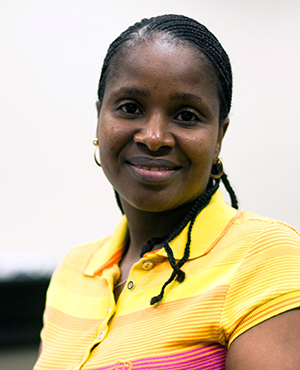
Refining a career in open, distance and e-learning
Dr Mmabaledi Kefilwe Seeletso, a postdoctoral fellow in the UNESCO Chair on Open Distance Learning (ODL) at Unisa, is on an upward path in using her career in open, distance and e-learning (ODeL) to develop study material relevant to distance learners.
She is a distance learning practitioner and a distance learner, with a research interest grounded in developing instruction and material for distance learners. This entails developing instruction for the ear, because "you develop content for someone you will never see but who needs to comprehend what you have put together," she said.
An employee of Botswana Open University (BOU), her research focus is on issues related to ODL content planning design and development, and on the assessment of tertiary programmes for teacher education.
Seeletso’s academic journey started in 1996, when she obtained a Bachelor degree in Humanities, followed in 1997 by a Postgraduate Diploma in Education, both from BOU. She then proceeded to do her Master’s degree in Educational Management in 2004 at the University of Bath, in the United Kingdom. A few years later, she enrolled for a PhD in Curriculum Instruction and Development with the University of Pretoria, which she completed in 2015, graduating in early 2016.
A lifelong educator, Seeletso worked as a high school teacher after graduating from university in July 1997 until December 1998. From January 1999 to date, she has been working for a distance learning institution, BOU. "I have been in the ODeL arena for most of my working life, which is more than 20 years," she said. She entered the ODL space as a course development officer, with a responsibility of developing curriculum and content for a school equivalency programme.
From 1999 to 2010, she coordinated the design, development and delivery of the Botswana General Certificate of Secondary Education, equivalent to the National Senior Certificate. In 2011, she moved to higher education where she was involved in the development and coordination of the diploma up to the master’s programme. "I was sent to Singapore in 2011 where I led an Africa team that developed part of the Master’s Educational Leadership programme that was sponsored by the Commonwealth of Learning," she said.
In 2019, Seeletso joined Unisa to participate in the ODL Postdoctoral Fellowship Support Programme in the UNESCO Chair on ODL under the College of Education.
The UNESCO Chair on ODL hosted a series of seminars facilitated by field experts in ODL at the Muckleneuk Campus in 2019. The crux of the matter was about how scholars in higher education could exploit the use of technology to leverage improved access and to increase collaboration.
"Prof Moeketsi Letseka, incumbent of the UNESCO Chair on ODL, goes all the way to ensure that our research and scholarship are developed as postdoctoral fellows," said Seeletso. She said she appreciates his mentorship, as he always extends conference invitations to all the postdoctoral fellows and informs them that they cannot attend without a paper to present.
By January 2020, Seeletso had presented four papers on open educational resources (OERs) and on the use of technology to facilitate or enhance teaching and learning at national and international conferences.
With a vast interest in OERs she sees being a postdoctoral fellow at Unisa as a privilege because she has opportunities to engage with ODeL experts like Prof Mpine Makoe, incumbent of the newly established Commonwealth of Learning Chair on Open Education Resources/Practices (OER/OEP).
"Information Communication Technologies (ICTs) was the lacuna to access improved learning, and what we need for improved higher education," said Seeletso. In one of her research papers, she looked at IT as filling the gap for access to education and for collaboration purposes cognisant of the Fourth Industrial Revolution (4iR).
Another paper was on the very nature of her job - research. The paper addressed the perceptions that students have about their research; students who study in the ODL scope; and how research supervisors handle students, in terms of support.
As a postdoctoral fellow in the UNESCO Chair on ODL, Seeletso said she is getting much needed exposure, networking and collaborating with established researchers. "The one thing that I always tell people about being an ODeL practitioner is that you cannot practise something that you have not learnt. You have to adopt a tendency of earning while learning, so that you can appreciate the uniqueness of this philosophy," she commended.
Furthermore, Seeletso said ODeL is the way to go, because facilitating or instructing in an ODL/ODeL environment always gives you an opportunity to learn. "Each day brings different opportunities for growth because of the massification; you meet many people. Learning takes place anywhere; there is a cross-pollination of ideas and you can see and choose which one works for you," she said.
As an advocate of ODeL, Seeletso encourages scholars from different academic streams to pursue a career in the discipline in order to remain relevant in the 4iR era. "ODeL is a mode of delivery and of support, irrespective of the discipline or content," she affirmed.
* By Mpho Moloele, PR and Communications Assistant, Department of Research, Innovation and Commercialisation
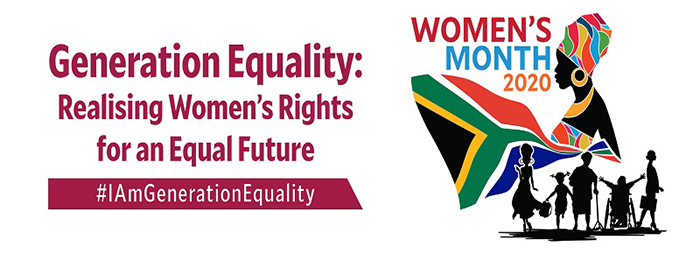
Publish date: 2020-08-05 00:00:00.0
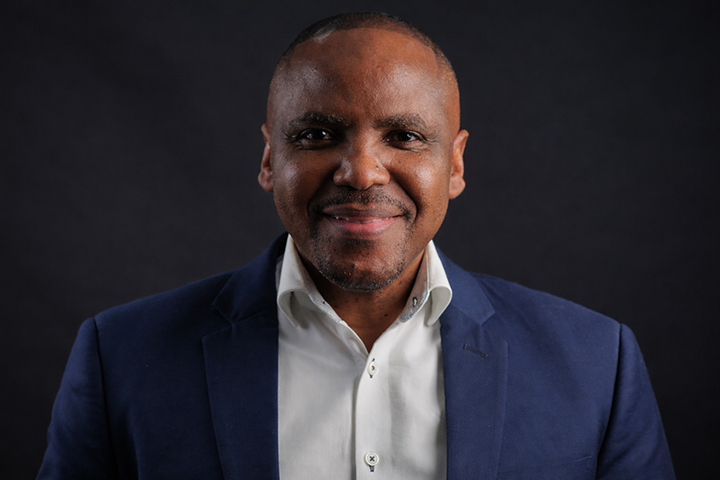 National leader in mathematics education aims to improve outcomes
National leader in mathematics education aims to improve outcomes
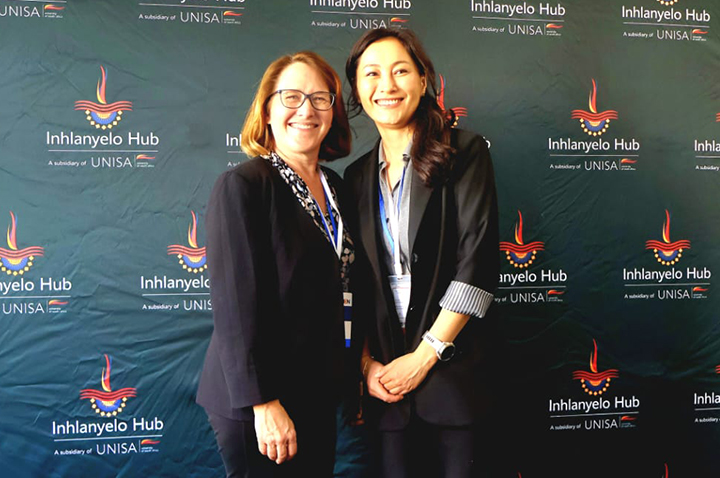 Unisa roundtable focuses on empowering SA women to lead in innovation
Unisa roundtable focuses on empowering SA women to lead in innovation
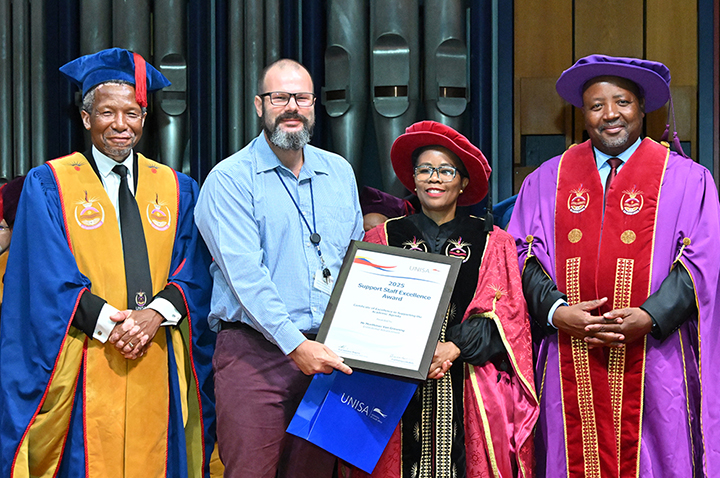 Unisan recognised for web excellence
Unisan recognised for web excellence
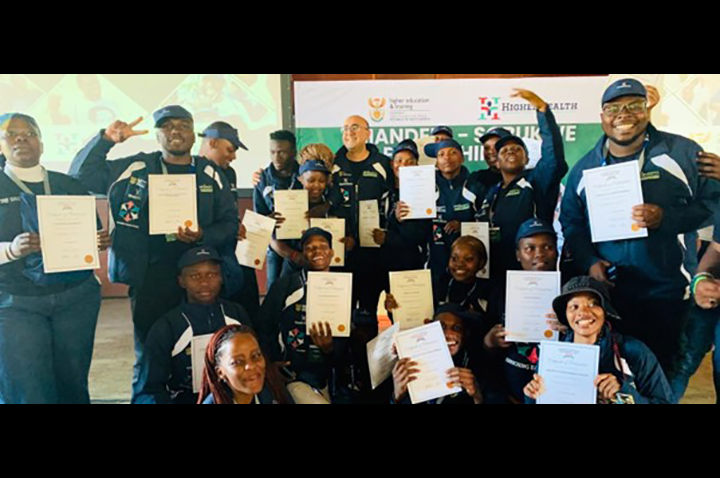 Office of the Dean of Students participates in leadership camp
Office of the Dean of Students participates in leadership camp
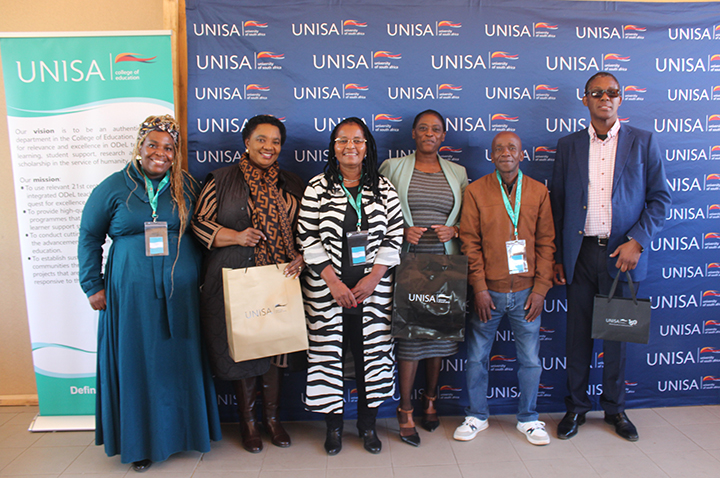 Unisa project fosters digital and pedagogical innovation in Limpopo schools
Unisa project fosters digital and pedagogical innovation in Limpopo schools